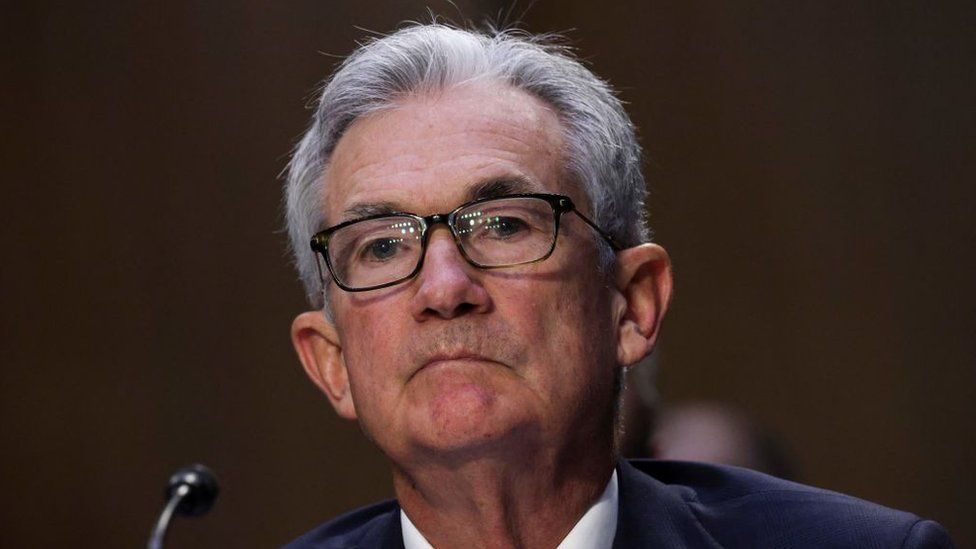Jerome Powell has been nominated for a second term as chair of the US Federal Reserve by President Joe Biden.
Mr Powell is set to stay in the role, which includes managing inflation and regulating the financial system, for a further four years.
He was initially appointed by former President Donald Trump and started his first term in 2018.
The 68-year-old Republican has been praised for his management of the economy during the pandemic.
The other front-running candidate, Lael Brainard, was favoured by progressives on the left of President Biden's Democratic Party.
They have criticised Mr Powell for not doing enough to tackle climate change and poverty and say he has weakened regulation of financial institutions.
Ms Brainard, who has been on the board of governors of the Federal Reserve since 2014, has been nominated as vice chair.
Announcing the nominations, President Biden said: "While there's still more to be done, we've made remarkable progress over the last 10 months in getting Americans back to work and getting our economy moving again.
"That success is a testament to the economic agenda I've pursued and to the decisive action that the Federal Reserve has taken under Chair Powell and Dr Brainard to help steer us through the worst downturn in modern American history and put us on the path to recovery."
The nominations need to be confirmed in the Senate, before Mr Powell and Ms Brainard take up their posts in February 2022.
line
Analysis box by Anthony Zurcher, North America reporter
After months of speculation and weeks of apparent hesitation, Joe Biden has decided to stick with Jerome Powell for what is, arguably, the most powerful economic job in the world.
He does this despite clear indications that this will anger the left in his party. Some liberals in the closely-divided Senate have already promised to oppose Powell, who was first selected by Donald Trump, when his nomination comes to a vote in the chamber.
Biden may think that by also picking the more left-leaning Lael Brainard to be vice-chair he would assuage some of this dissatisfaction, but that seems unlikely for liberals who want the Federal Reserve to be more aggressive in addressing income inequality and banking power.
Instead, Biden has opted for stability in the Federal Reserve at a time when rising interest rates and continued Covid-related challenges put the US economy in a precarious position.
The president may consider Powell the safe choice, with some Republicans already offering their support. But if Senate Democrats fracture over the nomination, it may make it more difficult for them to stick together to pass Biden's Build Back Better social spending legislation - a development could have grave political consequences for their party.
line
Mr Biden said he was confident that Mr Powell and Ms Brainard would focus on tackling inflation, but also shared his belief that urgent action was needed to tackle climate change and risks to the financial system.
President Biden's government is coming under increasing pressure as prices continue to rise for every day goods, eating into ordinary Americans' spending power.
Last month, consumer price inflation reached 6.2%, defying predictions, including from Mr Powell, that it would come quickly back under control once the economy reopened.
The Federal Reserve has primary responsibility for managing inflation but the issue is also affecting the president's own poll ratings, according to a poll for CBS published this weekend.
US Treasury Secretary Janet Yellen said having an independent and experienced Federal reserve was "critically important to navigating this turbulent time".
US stocks opened higher after the news, which was broadly in line with what investors had expected.
The appointment of Mr Powell, a former private equity lawyer and Republican, appointed by a Democratic president, represents a return to the traditional, non-partisan approach to selecting the Fed chair, after a more politicised approach from President Trump.
It also ensures continuity of policy at a time of considerable debate over interest rate strategy.
BBC





